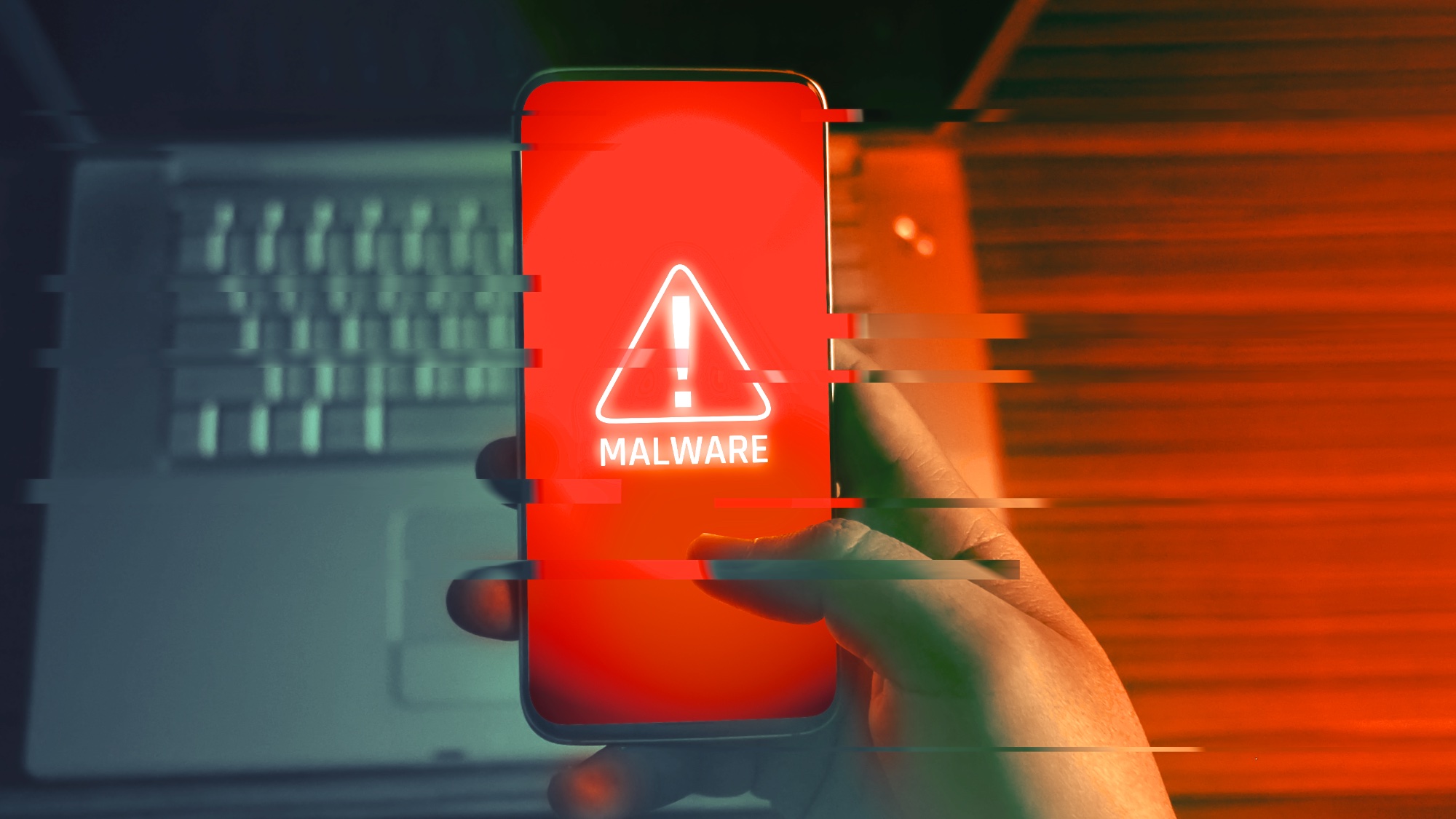How to know you've been hacked on mobile
Some tell-tale signs that your phone might have been hacked

Here at Tom’s Guide our expert editors are committed to bringing you the best news, reviews and guides to help you stay informed and ahead of the curve!
You are now subscribed
Your newsletter sign-up was successful
Want to add more newsletters?

Daily (Mon-Sun)
Tom's Guide Daily
Sign up to get the latest updates on all of your favorite content! From cutting-edge tech news and the hottest streaming buzz to unbeatable deals on the best products and in-depth reviews, we’ve got you covered.

Weekly on Thursday
Tom's AI Guide
Be AI savvy with your weekly newsletter summing up all the biggest AI news you need to know. Plus, analysis from our AI editor and tips on how to use the latest AI tools!

Weekly on Friday
Tom's iGuide
Unlock the vast world of Apple news straight to your inbox. With coverage on everything from exciting product launches to essential software updates, this is your go-to source for the latest updates on all the best Apple content.

Weekly on Monday
Tom's Streaming Guide
Our weekly newsletter is expertly crafted to immerse you in the world of streaming. Stay updated on the latest releases and our top recommendations across your favorite streaming platforms.
Join the club
Get full access to premium articles, exclusive features and a growing list of member rewards.
Software like the best VPN services and best antivirus software are invaluable when it comes to keeping yourself safe online. It's also worth using a password manager keep all your accounts as safe as possible, and two-factor authentication should always be used where available.
Mobile devices are an indispensable part of our lives these days. However, while they offer connectivity and convenience, they are also a popular target for baddies who are after your info. If a malicious threat makes its way onto your phone, your personal information, such as credit card and bank details, social security number, and contact details can be compromised – or even leaked onto the dark web.
If you're noticing your device isn't working as expected, ruling out a hack is essential. In this guide, I’ll delve into the warning signs of a hacked phone so that you can, at all times, stay safe and protected.
1. High data usage
The first thing you may notice is extraordinary data usage. Hackers often install malware on your phone, requiring huge amounts of data to track your activities in the background or send your data to the server.
You can check your data usage from your phone settings to identify unexplained usage. Streaming apps like Spotify, YouTube, Netflix, and the like usually use a high amount of data. However, if you notice that another app is using excessive data, it could be a sign that something is wrong.
2. Extreme battery usage
If your phone usage habits haven't changed, but your battery is draining faster than it normally does, it could be a concern. Malware or other malicious software operating in the background can eat up your device’s battery, causing your phone to drain faster and heat up even while you’re not using it.
To find the culprit, open settings and go to battery to check your battery health and battery usage graph. Next, look for anything unusual, such as an unwanted app drawing a lot of power. You can uninstall the app, force-stop it, or reboot your phone.

3. Sluggish performance
If you find sudden changes in your mobile, such as slow apps, malfunctioning games, or frequent crashes, it could be telling you that there's malware on your device. Malware will usually use up your device resources and affect the performance of other apps.
For example, hackers have been known to use excessive resource processes on your device to mine cryptocurrency. So, it’s important to check the apps on your system frequently, the storage they use, and how much free space is available on your device. If you still can’t identify the cause, it’s possible that your phone is hacked.
4. Apps, calls or texts you don’t recognize
You can add your number to the FTC’s National Do Not Call Registry. It’s illegal for telemarketers to contact you once your number is on this free directory. Other countries worldwide have similar options.
Look for any random app you didn’t download, unauthorized emails, texts, purchases, and robocalls—if you find anything, it's a red flag. Avoid taking calls from unknown numbers unless you are expecting a call or can confirm the caller's identity.
Did you know that a hacked Android phone or iPhone can send text messages to all of its contacts? If someone you know has been hacked, your phone number could be next on the list. Moreover, if any of your contacts complain about a suspicious message received from your device, it could be a sign that your phone is hacked.
5. Pop-ups
Are you being bombarded with unwanted pop-ups while using your browser? If so, your phone might be hacked. Inappropriate content or flashy ads can be indicators of malware in your device. When you see a pop-up, make sure not to click on any links and carefully close the window.
Although not all pop-ups suggest malware, if you notice an increase in pop-ups, it could be a sign of adware. An adware will prompt you to click on malicious links or redirect you to various sites to generate revenue through clicks.
Another clue is any configuration changes that you didn’t make. Furthermore, avoid entering your password or credit card details on sites that look suspicious.
6. Unusual activity on social media accounts
If you get alerts about any unusual activities in your social media accounts, such as unexpected posts, messages, or other activities, your device and account are at risk.
These may include new posts from your account that you didn’t create, messages sent to others from your account you didn’t send, or unusual login attempts from a different device. Also, look out for verification emails notifying you that you've signed up for new accounts you don't recognize.
Bottom line
The above are some of the most common signs of a hacked phone, but that's not all—there are other signs like software and hardware crashes, microphone or camera turning on automatically, getting locked out of your accounts, and many more.
If you notice any of these, take immediate action and use tools like antivirus software and malware detection tools. Run a few scans, and if there’s any threat detected, remove it.
Get instant access to breaking news, the hottest reviews, great deals and helpful tips.

Krishi is a VPN writer covering buying guides, how-to's, and other cybersecurity content here at Tom's Guide. His expertise lies in reviewing products and software, from VPNs, online browsers, and antivirus solutions to smartphones and laptops. As a tech fanatic, Krishi also loves writing about the latest happenings in the world of cybersecurity, AI, and software.
 Club Benefits
Club Benefits










